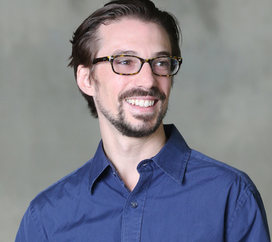
| Physical CD 15.99 US | Digital Download | |
 |  Amazon Amazon |
| Side by Side | 01. | Michio Kitazume: Side by Side 7:35 | |
| Rain Chain | 02. | Kristin Kuster: Rain Chain 7:17 | |
| Monobot | 03. | Andrea Mazzariello: Monobot 8:22 | |
| Woodpecker | 04. | Louis Andriessen: Woodpecker 7:09 | |
| Hekate | 05. | Konstantinos Karathanasis: Hekate 13:37 | |
Total Playing Time: 44:00 | |||

Side by Side (notes from Dan Piccolo)
Side by Side, composed in 1989, is a staple of the multiple percussion literature. The piece explores contrasting pulse divisions, developing patterns that at first appear to conflict in a kind of rhythmic dissonance, but that ultimately resolve as the voices repeat until they once again align with one another.
Michio Kitazume (b. 1948) is director of the Japan Society for Contemporary Music, guest professor at the Tokyo College of Music, and emeritus professor at Aichi Prefectural University of Fine Arts and Music. http://michiokitazume.com/
Rain Chain (notes from Dan Piccolo)
A rain chain is a more decorative alternative to a downspout that creates a water feature out of rainwater falling from gutters. Composer Kristin Kuster explains the way that her vibraphone solo evokes her childhood experience of watching the rain flow over the chain at her family’s summer home on the south shore of Lake Michigan: “When it’s groovy, that’s the rain chain, and the melody happening around it is the rain. The fast sections are as if we are looking up the chain to see if any more rain is coming.”
Rain Chain was premiered by Peter Dodds in Boston in January of 2013.
Kristin Kuster (b. 1973) teaches composition at the University of Michigan School of Music, Theatre & Dance. Her music has earned numerous awards from organizations including the Academy of Arts and Letters and the American Composers Orchestra, and she has received commissions from the Colorado Music Festival, the 6ixWire Project, the Lisbon Summer Fest Chamber Choir, and others. http://kristinkuster.com/
Monobot (notes from composer)
Monobot, for drum kit solo, is the last in a series of “bot” percussion pieces. The others are quartets that obsess over passing notes around the ensemble and shifting grooves and feels, and the intense interaction between players necessary to pull the music off is as much a point of focus as the notes on the page. Monobot comes out of these priorities but asks what one player is capable of doing in that context, how ensemble writing might translate to solo performance, what you need to do as a performer and composer in order to create a kind of rhythmic counterpoint.
Andrea Mazzariello (b. 1978) composes concert music, music for film and visual art, and is also an active songwriter. He currently teaches composition, music technology, and music theory at Carleton College, and directs the composition program at the Sō Percussion Summer Institute. He completed a Ph.D. in Music Composition at Princeton University, an M.M. at the University of Michigan, and a B.A. in music and English at Williams College. https://www.andreamazzariello.com/
Woodpecker (notes from Dan Piccolo
Dutch composer Louis Andriessen (b. 1939) is known for his unique approach to minimalism, or “styleless-ness,” as he himself has described it. A common method in this approach is the creative re-framing of an otherwise ordinary object, be it a non-musical source or a fragment of another composer’s music. Andriessen has been on the faculty of the Royal Conservatory of the Hague since 1973.
Woodpecker excellently illustrates the recontextualization of a “non-musical” source, as well as compositional techniques that are typical of the composer’s later works, such as a penchant for process, repetition, hocketed rhythms, stacked layers, and a dissonant tonality derived from a small amount of pitch material. The limited pitch vocabulary in Woodpecker is plainly seen in the pitched woodblocks and temple blocks, but is exaggerated in the marimba, which for most of the piece uses a noticeably restricted range of the available notes. More importantly, though, the piece exemplifies Andriessen’s tendency to adhere to some underlying conceptual principle, in this case the evocation of a familiar incidental sound from the natural world.
Though fiendishly difficult at times, Woodpecker remains playful and charming; Andriessen has said that the use of a commonplace object or subject in a work of art was “destined to have . . . a comical or poetic effect.”
Woodpecker was commissioned by the marimbist Nancy Zeltsman, to whom it is dedicated and who premiered the work at the Percussive Arts Society International Convention in Dallas, Texas in 2000.
Hekate (notes from composer)
Hekate is a Greek goddess associated with crossroads, gates, and liminal places in space and time. The moon, fire, herbs and poisonous plants, magic, witchcraft, angels, and ghosts are her dominion. She rules over earth, sea and sky, and accompanies the souls of the deceased to Hades, holding torches in her hands. In late antiquity, she was known as the Savior who embodied the Cosmic Soul.
The piece is written for Bendir (a special type of frame drum with snares), finger cymbal, and ankle bells. The frame drum is diachronically one of the oldest and most common instruments in the world. The sound of this simple instrument creates powerful emotions associated with shamanism, mysticism, rituals, ecstasy, healing, and femininity.
The piece showcases nocturnal and other field recordings captured by the composer over several years in Greece. The computer tracks the attack and the dynamics of the instruments and reacts by using various live processing techniques, which include multiple delays, phase vocoding, live sampling, frequency shifting, and harmonization, among others.
Hekate is commissioned by and dedicated to Patti Cudd.
Konstantinos Karathanasis (b. 1975) is an electroacoustic composer who draws inspiration from modern poetry, artistic cinema, abstract painting, mysticism, Greek mythology, and the writings of Carl G. Jung and Joseph Campbell. He holds a Ph.D. in Music Composition from the University at Buffalo and is currently an Associate Professor of Composition & Music Technology at the University of Oklahoma. http://www.karathanasis.org/
